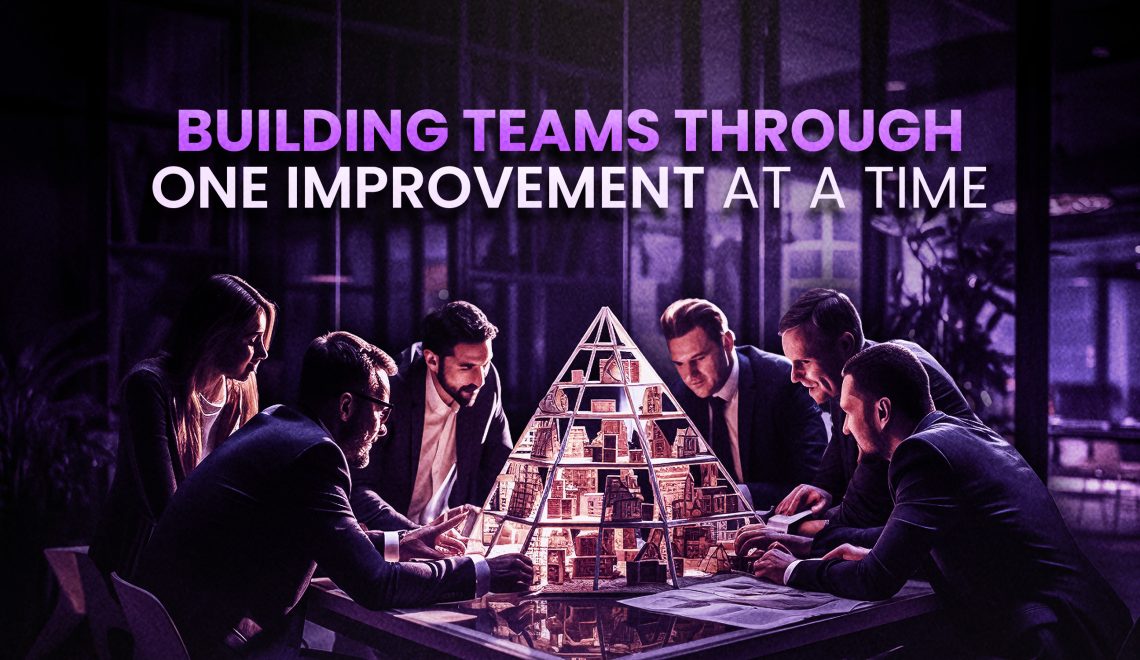
Growth is a continuous process. It does not stop with one achievement, but involves constantly preparing for the next. What does this mean for managers? It means focusing on the daily development of their team members and nurturing their potential through continuous improvement. This will create a dynamic and responsive environment where performance improvement is incorporated into the daily rhythm of work.
Let’s take a look at how to build teams through continuous performance improvement.
Growth happens daily: ongoing focus on performance
Managers should focus on the overall growth of the team members and go beyond the traditional performance reviews. They must shift to continuous feedback where performance becomes part of daily conversation and feedback is integrated seamlessly into the flow of work, whether in the form of brief acknowledgements or quick appreciation notes. This approach ensures that feedback remains relevant, actionable, and prevents minor issues from escalating.
However, for such an ongoing and daily performance approach, there should be clarity, direction, and enthusiasm in the manager’s actions. They must provide clarity on the goals and ensure that the team members understand their roles and responsibilities. They should offer direction by guiding team members through challenges, providing resources, and helping them overcome complex situations. Finally, they must focus on building enthusiasm by recognizing effort, celebrating achievements, and encouraging a motivating work environment.
Continuous improvement: the manager’s ongoing role in team development
The manager’s role in building the team is a continuous one. They are uniquely positioned to observe, coach, and guide their team members on a daily basis. This involves addressing inefficiencies and refining processes to contribute to the larger goal.
An efficient leader understands that work is never truly “done.” Just as a garden requires constant tending, a team requires perpetual nurturing and refinement. Managers must always be on the lookout for opportunities to enhance skills, increase collaboration, and equip the team for future challenges.
As market conditions change and new technologies emerge, the team dynamics also require changes. A true manager doesn’t see the team as fixed, but as a dynamic system that requires ongoing attention, learning, and intentional growth.
Final thoughts
Building and maintaining a high-performing team requires significant effort. It is a continuous process of small, incremental improvements. When you focus on daily performance, the team will have more clarity and direction about their roles. Ongoing feedback creates an environment where each team member grows to their full potential. A manager’s commitment to the daily development of their team lays the foundation for solid growth.
Frequently asked questions
How can managers make feedback a part of daily conversations?
Managers must provide constructive suggestions in everyday conversations. They should also offer praise and acknowledge achievements whenever appropriate rather than waiting for an official meeting. This will create a natural space for daily feedback.
How can a manager build enthusiasm in their team?
Managers must recognize the efforts of each team member and celebrate both small and large achievements. This will encourage motivation within the team and create a supportive atmosphere where employees are committed to common goals.
Why is it important for managers to view their team as dynamic rather than fixed?
Managers must be flexible and responsive to the changing market and emerging challenges. By viewing the team as dynamic, they create a space for continuous development and adaptability, ensuring that the team remains competitive.



